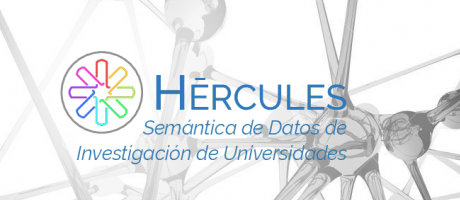9 posts found
PET technologies: how to use protected data in a privacy-sensitive way
As organisations seek to harness the potential of data to make decisions, innovate and improve their services, a fundamental challenge arises: how can data collection and use be balanced with respect for privacy? PET technologies attempt to address this challenge. In this post, we will explore what…
The protection of personal data in the draft Data Governance Regulation (Data Governance Act)
Since the initial publication of the draft European Regulation on Data Governance, several steps have been taken during the procedure established for its approval, among which some reports of singular relevance stand out. With regard to the impact of the proposal on the right to the protection of pe…
Hercules-ASIO Initiative. Integration, publication and consultation of linked open research data.
The Hercules initiative was launched in November 2017, through an agreement between the University of Murcia and the Ministry of Economy, Industry and Competitiveness, with the aim of developing a Research Management System (RMS) based on semantic open data that offers a global view of the research…
Citizen science and open data to help society
Some time ago we talked about the power of citizen science to generate open data. As we explained then, citizen science initiatives seek to encourage citizens to contribute to various scientific activities and research through their efforts, knowledge, tools and resources.
The participatory n…
Open data: the great allies to eradicate inequality
Is it possible to find in the data the necessary help to solve the real problems that our society faces? While it is true that data alone cannot be transformed into food for the most disadvantaged, nor can it make weapons disappear in conflict zones or inequalities in the world, they are very useful…
How open data can help in the refugee crisis
According to the United Nations Agency for Refugees (UNHCR), we are currently witnessing the highest levels of displacement of people registered in recent history. In 2019, it is estimated that more than 70 million people have been forced to leave their homes, including 25.9 million legal refugees,…
Open data as a tool to reduce inequalities
The public sector is not only a great provider of open data, but also one of its main users. Open data facilitates contact and direct communication between governments and citizens. This can drive more efficient and effective public policies.
Among other areas, open data has great potential to devel…
Pubby and LODI, opening linked data to humans
An important part of the data which is published on the Semantic Web, where resources are identified by URIs, is stored within triple store databases. This data can only be accessed through SPARQL queries via a SPARQL endpoint.
Moreover, the URIs used, usually designed in a pattern, in most of the d…
Personal open data but under control
Open data has great potential to improve transparency and accountability or to enhance public services and the creation of new services, but at the same time they also show a less friendly face by increasing our vulnerability and exposing information increasingly more detailed that is not always use…








